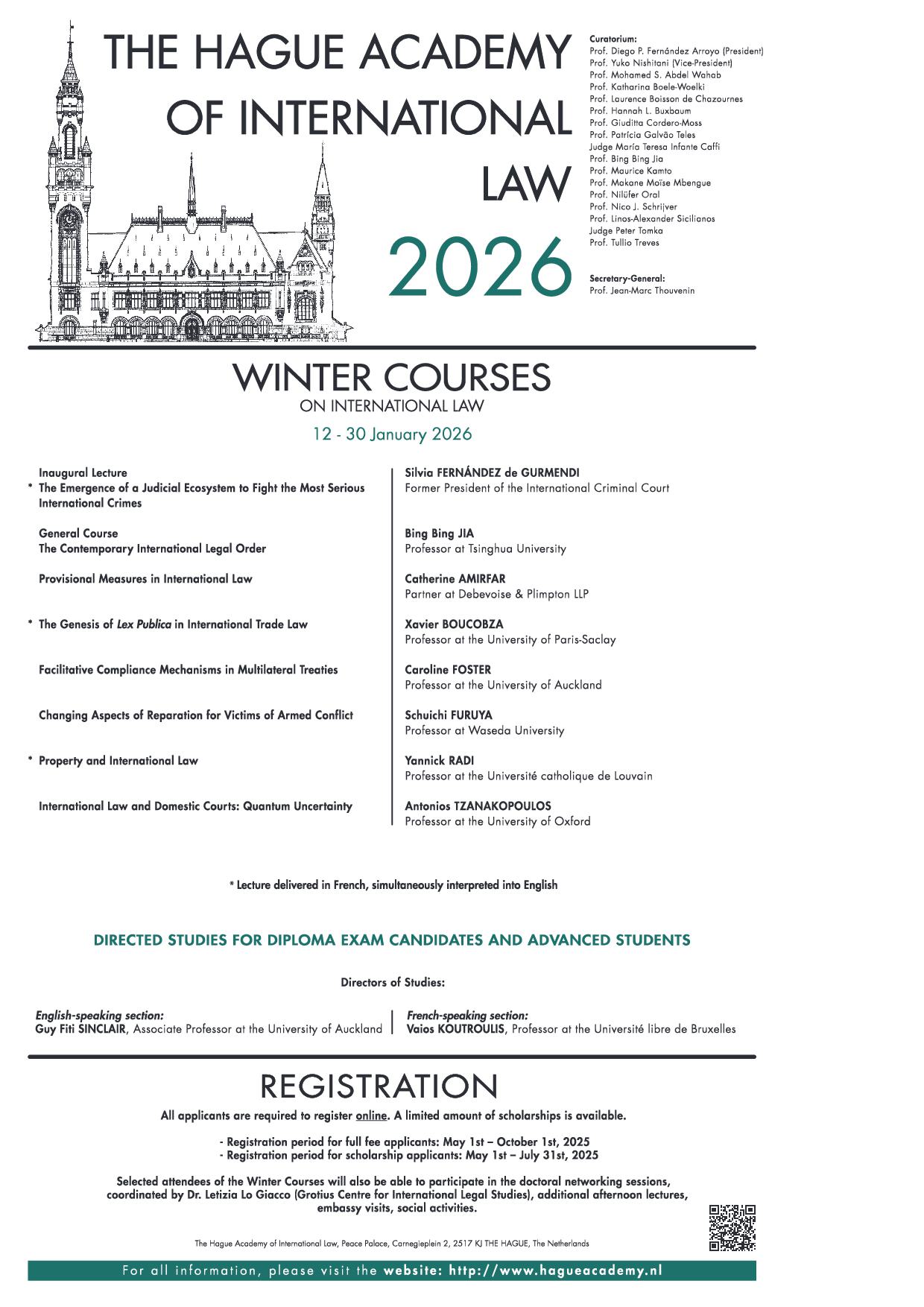Views
International child abduction: navigating between private international law and children’s rights law
In the summer of 2023 Tine Van Hof defended her PhD on this topic at the University of Antwerp. The thesis will be published by Hart Publishing in the Studies in Private International Law series (expected in 2025). She has provided this short summary of her research.
When a child is abducted by one of their parents, the courts dealing with a return application must consider several legal instruments. First, they must take into account private international law instruments, specifically, the Hague Child Abduction Convention (1980) and the Brussels IIb Regulation (2019/1111). Second, they have to take into account children’s rights law instruments, including mainly the UN Convention on the Rights of the Child.
Choice of law in commercial contracts and regulatory competition: new steps to be made by the EU?
The recently published study titled ‘European Commercial Contract Law’, authored by Andrea Bertolini, addresses the theme of regulatory competition. It offers new policy recommendations to improve EU legal systems’ chances of being chosen as the law governing commercial contracts.
The Study’s main question
The European Parliament’s Committee on Legal Affairs has published a new study authored by Andrea Bertolini, titled ‘European Commercial Contract Law’ (the ‘Study’). The Study formulates the main question as follows: ‘why the law chosen in commercial contracts is largely non-European and non-member state law’. The expression ‘non-European and non-member state’ law is specified as denoting the legal systems of England and Wales, the United States, and Singapore, and more generally, common law legal systems. The Study states:
It is easily observed how most often international contracts are governed by non-European law. The reasons why this occurs are up to debate and could be quite varied both in nature and relevance. Indeed, a recent study by Singapore Academy of Law (SAL) found that 43 per cent of commercial practitioners and in-house counsel preferred English law as the governing law of the contracts. Read more
Financial Hardship and Forum Selection Clauses
The U.S. Supreme Court has long held that a forum selection clause should not be enforced when “trial in the contractual forum will be so gravely difficult and inconvenient” that the plaintiff “will for all practical purposes be deprived of his day in court.” The financial status of the plaintiff is obviously a factor that should be considered as part of this inquiry. Large corporations can usually afford to litigate cases in distant courts. Individual plaintiffs frequently lack the resources to do so. Nevertheless, the lower federal courts in the United States have repeatedly held that financial hardship on the part of the plaintiff is not enough to make an otherwise valid forum selection clause unenforceable. Read more
News
5th German Conference for Young Researchers in Private International Law in Heidelberg – Conference Report
Written by Victoria Hélène Dintelmann (Heidelberg University)
 On February 14th and 15th, 2025, more than one hundred young academics gathered at Heidelberg University for the 5th German Conference for Young Researchers in Private International Law to discuss the topic “Digital Transformation and Private International Law – Local Connections in Boundless Spaces”. The conference was organized by Andreas Engel, Sophia Schwemmer, Felix Berner, Aron Johanson, Markus Lieberknecht, Ann-Kathrin Voß, Charlotte Wendland and Anton Zimmermann.
On February 14th and 15th, 2025, more than one hundred young academics gathered at Heidelberg University for the 5th German Conference for Young Researchers in Private International Law to discuss the topic “Digital Transformation and Private International Law – Local Connections in Boundless Spaces”. The conference was organized by Andreas Engel, Sophia Schwemmer, Felix Berner, Aron Johanson, Markus Lieberknecht, Ann-Kathrin Voß, Charlotte Wendland and Anton Zimmermann.
PIL conference in Ljubljana, 18 September 2025
University of Ljubljana is organising Private International Law Conference with sessions in Slovenian and English. The conference, which will take place in Ljubljana (Slovenia) on 18 September 2025, will gather reknown academics and practitioners who will address current topics in European and international PIL.
The programme is available by clicking here: PIL-Ljubljana2025 and for more infromation you are welcome to contact the organisers at: ipp.pf@pf.uni-lj.si.
Registration Open Soon: The Hague Academy of International Law’s Winter Courses 2026
Recently, the Hague Academy of International Law published the 2026 programme of its renowned Winter Courses in International Law (12-30 January 2026). Unlike the Summer Courses, this program presents lectures on both Public and Private International Law and therefore provides for a particularly holistic academic experience. Once again, the Academy has spared no effort in inviting legal scholars from around the world to The Hague, including speakers from countries as diverse as Argentina, Belgium, China, France, Japan, the United Kingdom, and the United States, offering its audience a truly global perspective on the topic. Read more




